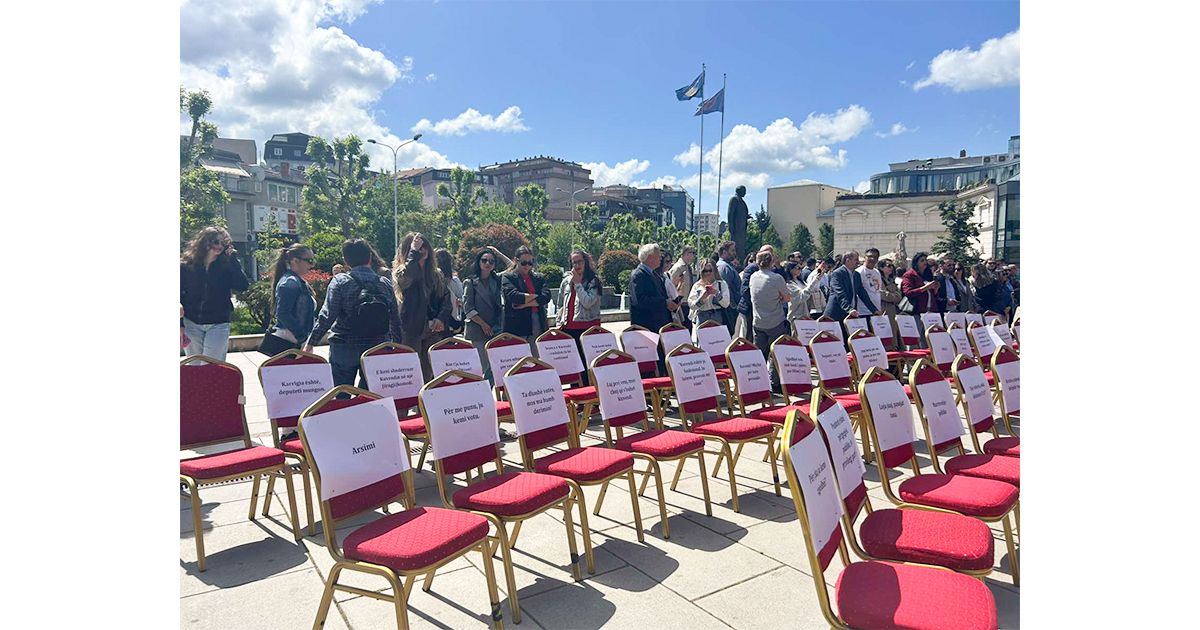KWN has been involved in conducting gender analyses of Kosovo budget processes since 2012. Therefore, on 22 Jan., KWN was invited to a High-Level conference on Budget Transparency in Kosovo, organized by the GIZ project, “Reform of Public Finance Systems”. The conference was chaired by David Nguyen-Thanh, Head of Competence Center, Public Finance and Public Administration Reform at GIZ.
Ms. Angelika Viets, Ambassador of the Federal Republic of Germany, and Avdullah Hoti, Minister of Finance in the Republic of Kosovo made the opening remarks to the conference.
“The Ministry of Finance will be very transparent regarding the expenditure of every cent of the budget of,” said Mr. Hoti. “We need to give our maximum that every cent is spent in the right way”.
Three panels took place in the course of the conference:
- Panel I: Why Budget Transparency Matters
- Panel II: The Role and Importance of Transparency in Budget Development.
- Panel III: The Role and Importance of Transparency in Budget Execution and Control.
During the first panel, Mark Hallenberg, Director of the Fiscal Governance Centre at the Hertie School of Governance in Berlin, discussed the importance of the reliability of data, mentioning that transparency cannot be achieved only through the availability of data. True budget transparency can only be achieved when the available data is completely reliable. Professor Hallenberg also discussed the benefits budget transparency can provide to a country. He cited many studies that correlate transparency with higher levels of trust (by citizens and investors), with higher investments, and lower levels of corruption.
During the second Panel, Mr. Klaus Feiler, State Secretary, Senate Administration for Finance, State of Berlin narrated how the Berlin budget is planned and executed; and demonstrated how truly transparent this process is. He also informed the participants on Gender Responsive Budgeting, something that Berlin has been integrating in its budget processes in the last 12 years. Mr. Agron Demi, Ekzekutive Director of the GAP institute, also spoke in the second panel, and heavily criticized the lack of transparency of the Kosovo government. He gave numerous examples of instances when the GAP institute was denied requested information and data from the government.
According to Bettina Hagedorn, Chairwoman of the Public Accounts Committee in the German Parliament, the planning process for the budget in Germany begins in March of a given year; in July it is sent to the MPs, who can analyze it until September; budget discussions begin in September and last until November. On the other hand, according to Besnik Bislimi, chairman of the Committee for the Oversight of Public Finances in the Republic of Kosovo stated that Kosovo MPs had one day available to read and discuss the draft budget for the 2015 fiscal year.
After the many issues that were discussed in the conference, and the many comparisons that were made between Kosovo and Germany, the following conclusion can be made: If Kosovo fiscal processes are to become more transparent, the timeframe given to MPs to read the draft budget, and the intensity of budget consultations must be increased.


